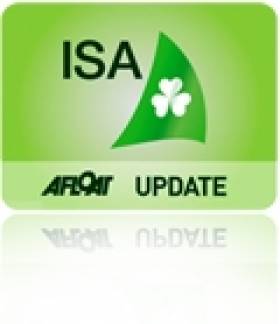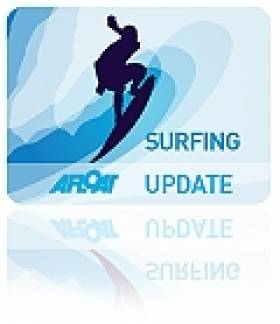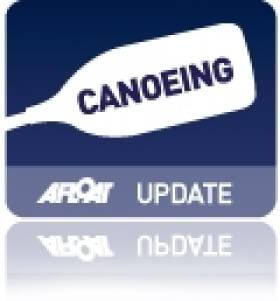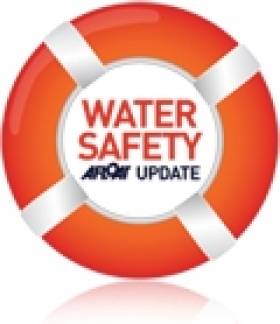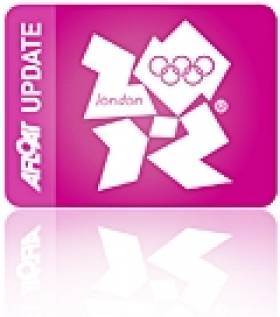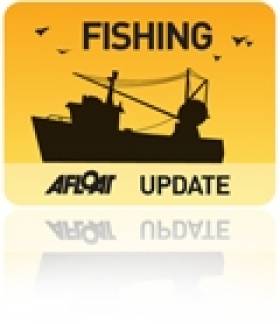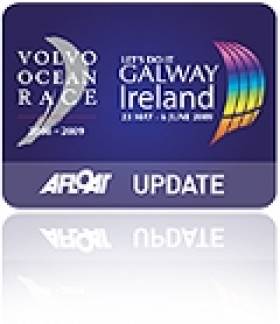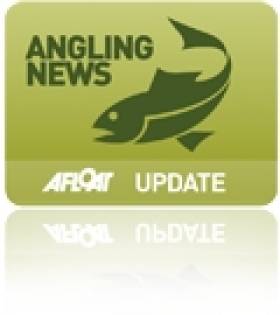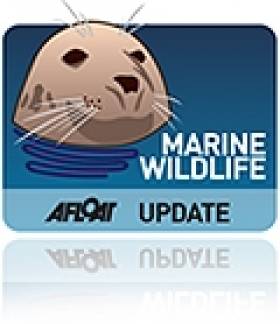Displaying items by tag: 2012
#ISA NEWS - The Irish Sailing Association's Olympic Department is inviting tenders for photographic services and social media content for the Irish sailing team at the Sail for Gold Regatta in Weymouth from 4-9 June.
The tender requires attendance at Sail for Gold from Wednesday 6 to Saturday 9 June inclusive.
The photography portion involves daily coverage of Irish sailors racing with a target of 6-10 images per sailor (schedule to be agreed with support team dependant on campaign performance and availability of media boats), plus headshots of the squad and support teams in team clothing, and group shots with and without support teams.
Social media content will involve daily pre-race audio and video with the performance director; daily audio/video with sailors from the media zone; and a micro documentary (3 minutes max) on pieces of interest from an Irish perspective.
Applications for this tender should be emailed to [email protected] by the closing date tomorrow, Friday 13 April 2012. A decision will be made before 20 April to allow time for accreditation and registration for media boats.
Full details on requirements and details of rights and pricing are available on the ISA website HERE.
Irish Surfer Needs Funds to Attend Big Wave Awards
#SURFING - A young surfer from Lahinch in Co Clare is in the running for the 'biggest wave' prize in the 2012 Billabong XXL contest for his monster ride at Mullaghmore Head, The Irish Times reports.
Ollie O'Flaherty, 24, is nominated along with Devon's Andrew Cotton for the massive surf they caught off Co Sligo on 8 March last.
It was the first visit to the world-class big wave spot by O'Flaherty, a science student at NUI Galway who is a veteran of the Co Clare scene.
As previously reported on Afloat.ie, it was Cotton who tackled the biggest wave on that day - a giant 50-footer - as some of the world's top surfers took advantage of the Viking swell.
Also nominated for the $50,000 (€38,280) prize is Irish-American surfer Garrett McNamara, who last year rode what is being called the biggest wave ever surfed in the world, a 90-foot goliath off Nazaré in Portugal.
According to the Irish Independent, O'Flaherty has put out a call for sponsorship so he can attend the awards ceremony next month.
"It's a massive honor to be able to represent Ireland," he said, but added that he is "pretty much on the breadline from what I'm doing".
Should he win, the Lahinch native said he intends to "put every cent back into surfing" and replace his seven broken boards.
The winners will be announced at the Billabong XXL Big Wave Awards in Anaheim, California on 4 May.
March's Big Waves Tease a Wild Summer of Surfing
#SURFING - Irish surf classifieds website Surfseekers.ie has compiled some stunning images from March's world-class surfing conditions.
From the biggest rollers in years off Mullaghmore Head in Co Sligo to the Cliffs of Moher and even as far south as Kerry, Ireland has seen some of its best surf in a long time - and things are certainly looking up for an exciting summer on the waves.
NI Deaf Paddler To Carry Olympic Torch
#CANOEING - Irish canoe slalom paddler Matthew Sykes has secured a place on the Olympic torch relay this summer.
“I am only one of only 8,000 people selected to carry the London 2012 Olympic torch relay," the Northern Irishman told IrishCanoeSlalom.com. "It was a lovely surprise to find out that I was going to carry the Olympic torch.
"To be the first deaf person in Northern Ireland to be chosen is a real privilege and I think it will be a great experience.
"I think it will be a great day when the torch comes to this country and I am sure everyone will be down there to watch so it will be a good experience.”
Sykes will carry torch in Dundonald on 3 June. More details will be available soon on Sykes' website at www.matthewsykes.co.uk/news
As previously reported on Afloat.ie, the Olympic torch relay begins in Plymouth on 19 May and finishes at the Olympic Stadium on 27 July, and includes a visit to Dublin on Wednesday 6 June.
This Friday Last Day for 2012 Fingal Lifeguard Applicants
#WATER SAFETY - This coming Friday 30 March is the closing date for applications for Fingal County Council beach lifeguards for the 2012 summer season.
Lifeguard cover will be provided on Fingal beaches on weekdays and weekends 11am to 7pm from 2 July till the last week of August, depending on weather and staff levels.
Beaches and bathing places scheduled to be guarded this summer include Balbriggan (front beach), Skerries South, Loughskinny, Rush North and South Shores, Portrane (Tower Bay and The Brook), Donabate, Malahide, Portmarnock, Sutton (Burrow Road) and Howth (Claremount).
Applicants must be not less than 17 years of age on 1 May 2012. Application forms are available to download HERE.
RNLI To Play Big Part in Olympic Torch Relay
#OLYMPICS 2012 - The RNLI will play a "key role" during the Olympic torch relay ahead of the London games this summer, as Yachting and Boating World reports.
On 28 May the Olympic torch is set to visit Anglesey in north Wales, when it is taken along the Menai Strait on board the RNLI's Annette Mary Liddington.
The torch will again be carried by RNLI volunteers on 18 July when it is ferried to shore from a tall ship in Dover harbour aboard the all-weather lifeboat City of London II.
Dover RNLI's operations manager Roy Couzens said: “We are very much looking forward to being involved on the day – and believe me, when that torch is at sea in our lifeboat, it couldn’t be in safer hands!”
The Olympic torch relay begins in Plymouth on 19 May and finishes at the Olympic Stadium on 27 July. Its two-month-long journey will take it throughout Britain and Northern Ireland, and includes a visit to Dublin on Wednesday 6 June.
An interactive map of the complete torch relay route is available on the official London 2012 website HERE.
Irish Skipper Expo Visitor Numbers 'Exceed Expectations'
#FISHING - The 2012 Irish Skipper Expo has been hailed by organisers as the most successful to date, as World Fishing reports.
Over 100 companies displayed their products and services to more than 4,500 visitors from the fishing industry and retail and catering sectors at the Skipper Expo International 2012, held at the Galway Bay Hotel on 24-25 February.
As previously reported on Afloat.ie, Marine Minister Simon Coveney was on hand to launch a new initiative promoting the use of selective fishing nets, and he was full of praise for the weekend-long exposition.
“I am very impressed by the scale and expanse of this event which showcases a wide range of products and services for the fishing industry," he said. "While visiting the stands, I was able to meet and discuss with fishermen current issues and also get a good understanding of the latest developments and innovations in their industry.”
Sharon Boyle, event manager at organisers Mara Media Ltd, added: "The support from the industry continues to be very strong for this show and the number of visitors during the two-day event once more exceeded expectations in what was a very busy weekend.
"Dates for next year’s show are 1-2 March, being held once more at the Galway Bay Hotel.”
Galway Businesses Urged to Leave Volvo Ocean Race Legacy
#VOLVO OCEAN RACE - Businesses in Galway "must not abuse their affiliation" with the Volvo Ocean Race when taking advantage of its visit to the city this summer, a meeting hosted by the organisers heard on Monday.
As the Galway Independent reports, Galway Chamber president Declan Dooley urged business community to ask what it can do to help the event, rather than expecting the event to do something for its business.
He added that it was “critically important” that businesses ensured the expected 600,000 visitors to Galway were treated with "friendly service" and not "ripped off".
Also at the meeting at the Meryck Hotel, Let’s Do It Global MD Micheline McNamara outlined plans for the the Global Village and Race Villages and explained how businesses could get involved.
She said: “We want to develop a business legacy, so that when the boats leave, there are trade relationships, and business relationships that stay on."
As previously reported on Afloat.ie, organisers of the Volvo Ocean Race stopover this July have promised the event will be "bigger and better" than the previous visit in 2009.
The Galway Independent has more on the story HERE.
Hooked Live! Returns to CityWest This Weekend
#ANGLING - Hooked Live!, Ireland’s premier angling and fishing show, is returning to the CityWest Hotel and Lakes this weekend 10-11 March for the third year running.
Spey caster and innovator Ian Gordon is the latest star to join the already confirmed visitor favorites Paul Young, Henry Gilbey, Scott MacKenzie, Andrew Ryan and AGPAI Ireland, who will bring world-class casting demonstrations, talks and personal one-to-one sessions designed to improve and empower visitors to become better anglers.
Bringing the best in Irish angling water sports, with new tackle, venues and angling techniques, Hooked Live! also caters for the fly-fishing enthusiast with fly-tying and casting lessons.
And that's not to mention fly-fishing on our fully stocked lake, where both trout and perch will readily take a fly. Indeed, there are many top prizes to be won in the Lakes Fishing Challenge.
Sea anglers are also catered for and welcome at Hooked Live! and for the coarse fisher, there will be top class exhibits with great tackle and equipment available and a range of venues which will produce results.
Popular seminars will also cover some of the new and successful tackle and techniques which are now being used to catch more fish.
Also returning to Hooked Live! will be the Sporting Gun Show. Taking advantage of the synergy between shooting and fishing, visitors will be able to pick up bargains on end-of-shooting-season stock.
Tickets for Hooked Live! 2012 are priced from just €10 and are available now from tickets.ie. For more details visit the official website at www.hooked.ie
New Season of Summer Whale Watching Courses on Cape Clear
#MARINE WILDLIFE - The Irish Whale and Dolphin Group (IWDG) has announced another series of its popular whale watching courses on Cape Clear in West Cork this summer.
The courses cater for adults keen to learn more about whales and dolphins in Irish waters and how to observe, record and identify them. They will feature a mixture of workshops and field trips, including cliff and boat-based whale watches.
Three weekend courses will take place on 25-27 May, 20-22 July and 7-9 September, led by IWDG sightings co-ordinator Pádraig Whooley. All are open to IWDG members and non-members alike, but places are limited to 20 places each weekend on a first-come-first-served basis.
Admission is €70 for IWDG members (€90 for non-members), with a non-refundable deposit of €25 required. Please note that this fee does not cover transport to Cape Clear, food or accomodation (which is limited in high summer) or any boat trips. As the itinerary will be weather-dependant, some flexibility will be required.
More information on the weekends and booking details are available at the IWDG website HERE.
In other IWDG news, the group has secured another grant from the Island Foundation to continue its humpback whale research in Cape Verde this spring and summer.
A shore-based team will be stationed in Boa Vista in an area that is "possibly the most important site for breeding humbacks in the entire northeast Atlantic".


























